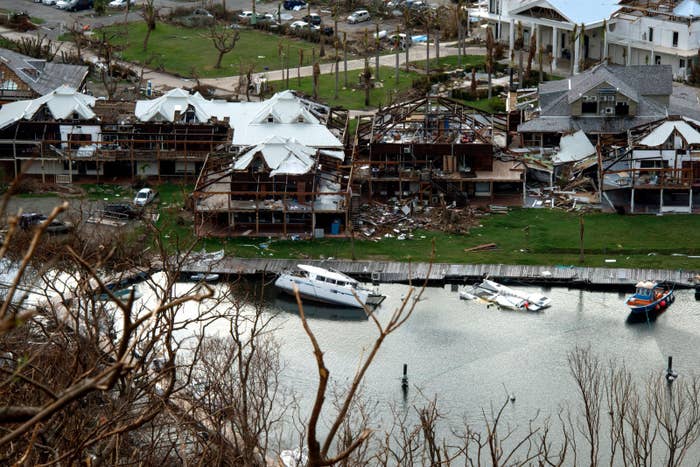
A combination of a "revolution" in renewable energy, a faster-than-expected reduction in carbon emissions, and slower-than-expected warming mean the world could realistically meet the highly ambitious Paris climate targets, according to research by the UK Met Office.
The 2016 Paris agreement set world governments the goal of keeping global warming to "well below" 2°C above the preindustrial average, with an "aspiration" of keeping it to less than 1.5°C. The agreement was met with surprise from climate scientists, many of whom thought its ambitions were unrealistic.
However, the new research, published in the journal Nature Geoscience, has found that those ambitions are more realistic than previously believed. In combination with an astonishingly rapid uptake in renewable energy technologies, according to the paper, this means the world has a roughly 2-in-3 chance of meeting the goals, given "ambitious" but realistic reductions in emissions. One researcher who last year said that the goals were "incompatible with democracy" has now revised his view.
The discrepancy comes from the fact that the 10-year-old models used to predict warming given a certain amount of carbon dioxide in the atmosphere suggested that we ought, now, to be about 1.3°C above the mid-19th-century average. However, the most recent observations suggest that we are in fact at about 0.9 to 1°C.
The difference between 1°C and 1.3°C is small in absolute terms, but Myles Allen, a professor of geoscience at the University of Oxford's Climate Dynamics Group and one of the authors of the study, told a press briefing that "when you're talking about a budget of 1.5°C, then a 0.3°C difference is a big deal". Specifically, it's the difference between having three to five years to reduce emissions to zero, and having about 20 years.
The paper suggests that if emissions peak and then decline back to below current levels by 2030, and then continue to drop more steeply after that, then models suggest we would have about a 66% chance of staying below 1.5°C.

The study also found that the disputed "climate hiatus", the period in which global surface air temperatures had risen more slowly than models had predicted, was over, with the last three years each being the hottest on record at the time.
Despite this, the paper found that the Paris climate targets should be achievable. Michael Grubb, professor of international energy and climate change policy at University College London and another of the authors of the study, told the briefing he had previously believed the 1.5°C target to be impossible. "I said it was incompatible with democracy," he said. "But there are three reasons for revising that view. One is this paper, finding that we have more room than we thought.
"The second is that global emissions have stabilised, particularly in China, and I think there are good reasons to hope that won't change much. And the third is a renewables revolution – China now has more than 100 gigawatts of solar cells. You won't find that number in official data, because more than a quarter of it has happened in the last six months.
"In the UK, offshore wind has turned out to cost a fraction of what we expected. So it's much more credible for governments to tighten up their targets."
Dr Karsten Haustein, a climate researcher at the University of Oxford who did not work on the paper, told BuzzFeed News that the analysis was "absolutely sound and in line with my thinking".
However, he warned that the paper unavoidably relied on several assumptions that may or may not be accurate, since the climate is so complicated. He also pointed out that even as it stands, the action required to meet the Paris goals is "extremely drastic". "The year 2037 is the limit," he said. "By 2038, net emissions have to be zero." He said that within a decade, we need to make a dramatic reduction in emissions.
There was consternation among climate scientists recently when Donald Trump said he was going to pull the US out of the Paris agreement. However, the researchers said the White House's policy was of less importance to the success of the agreement than many realised, despite the "dramatic" reaction in the media.
"The White House's position doesn't have much impact on US emissions," said Grubb. "The smaller constituencies – cities, businesses, states – are just saying they're getting on with it, partly for carbon reduction, but partly because there's this energy revolution and they don't want to be left behind.
"China, and almost every country, have made it clear that they're pressing ahead with Paris. My gut feeling is that the world will just get on with the job now."
Allen described the carbon reductions required to meet the goals as "very ambitious". "It's physically possible," he said. "The question is whether it's politically or economically viable." He described the situation as being comparable to a journalist thinking that her deadline was 4pm and that she didn't have enough time to finish the story, and then finding out that in fact her deadline was 4:30pm. "You can't go off to the pub," he said. "You've still got a lot of work to do."
